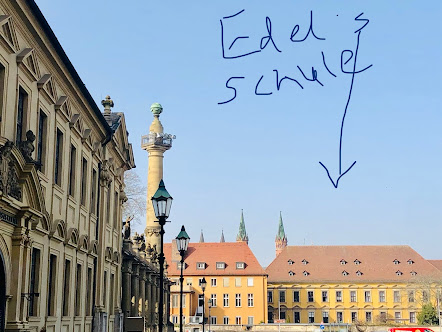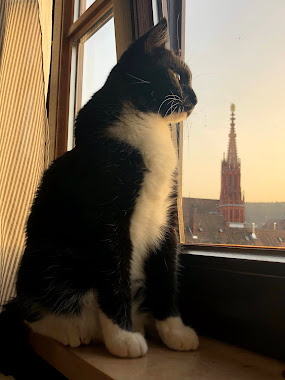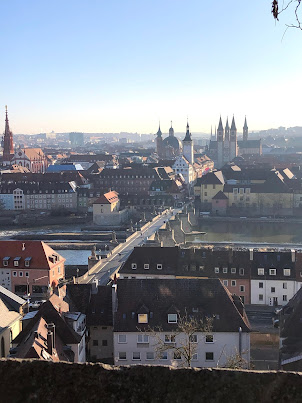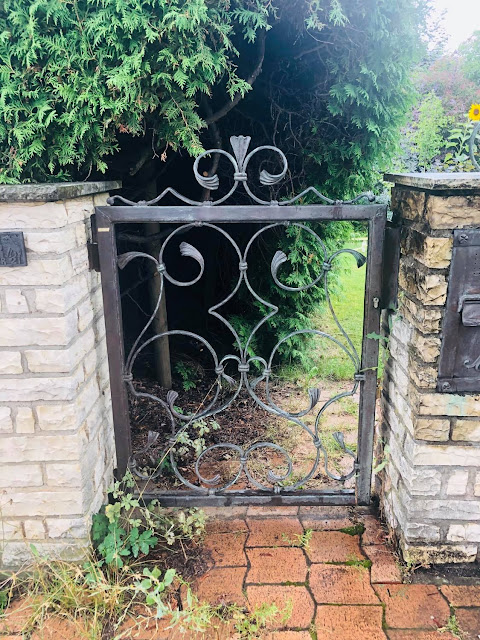Why did Mary Wollstonecraft's Mary Shelley know to pick Ingolstadt?
...sometimes when you read or write "to be continued" it takes full seasons changing (and seven months) to come around to that continuing. Are such gaps (from late August to mid-April) easily traced to two predominant columns in most of us? Something strange and terrible happened, or unexpected and grief-oriented, or so jarring to the nervous system as to take ages to recover without a sanitorium by the sea, so that something very important, pressingly important (as pressing pen to paper is to me) drops off to the point it seems it won't again commence. The other column would have words and phrases related in the thesaurus to dragging-of-heels, schoolboys-toward-books, excuse-making, feeling one's will to live eeking out if life is to be comprised of such tasks, laziness, entitlement, tenure. I frequent that latter column too with most other tasks one is supposed to do in a day, but it isn't, for me, the one that prevents tracing the murmurations of starling feelings and waxwing insight in ink of these past, or any, months.
We're in Würzburg now (Edel, I, the two cats Dinah & Clover, the Westie Maudley) on the fifth floor of an apartment building that didn't survive the firestorm that blew through here at this very time of night on the 16th of March, 1945, but whose courtyard cobblestones and archways below did. Nearly a month ago now, I'd just put Edel to bed and relaxed as mothers have across the ages who are doing this alone (even when plenty of them have husbands nearby doing so little with or for the children), when all the bells of all the cathedrals and spires of town rang for nearly 20 minutes. The annual ringing tolls us back to those who had that wistful moment too (where the war dropped away, as did hunger and worry) with the sleeping child making everything easefully suspended lightly upon at least the first few soft, heavy breaths of their slumber. Only to break into bombs that would have hit this building on a direct diagonal from Leistenstraße, below the Marienburg Festung, where they began the first drops from British planes. The Festung is lit this time of night (right out our row of windows) in Tuscan sun / La Paz tones of yellow/orange/gold umber. I was barely coming round that night from all we've endured since late August, and the bells ringing like that seemed to wake me up again. It was horrible to sit with that mother and child who didn't make it out of here or their terrible time. Walking inside an art museum just the next day after that (after museums, libraries, and everything else had been closed here as if war time since October) woke me further.
Teaching 19th-century British literature, a third class of long evening lecture to juggle, seemed at first just that, a juggle, & then further let down to see myself so unenthused due to nerve strain for the very things I care to teach (and am good at teaching). But then Keats' lines I've memorized before got hold of me prepping for Week 3's lecture and seemed to shake me in a way you must with someone etherized or actually Lethe-wards sunk ("Ode to a Nightingale" and first lines of "Endymion"). That wouldn't be enough though with my disdain for the gender of Keats so strong it could cloud my affection for his escriture. But there she is next after Keats and Percy - Shelley, nee Godwin, nee Wollstonecraft, writing at 18, of Ingolstadt, a city mere hours away in the same state of Bayern I am in. Her baby dead, her brilliant, bold mother never in reach of her own infant arms before her death, the deep pain of grief that longs to that extent for life to return. Dealing as ever with men and one's own related, irritating misdirected, compass-skewing in their proximity. From this she wrote her grief and loneliness down, and then it didn't sink her internally as much when it was unexpressed and unheard (or so I hope). How lovely to read for the first time, and teach, The Modern Prometheus in Bavaria. Being across this ocean I said I would get on the other side of often & for lengthy periods (a promise kept from my first time in Paris), even with, especially with daughter(s) in tow, even if these second stint conditions have not been Oxford-like, is an accomplishment even more for what has been overcome to get here, as well as to find lucidity again after additional loss & broken-down identity while here. How fortunate, incredibly, that both of mine born are well, when three of hers born did not make it this long. We 21st century folk demand that we be free of tragedy that takes the breath of anyone but the elderly away, or we feel wronged and freakishly, outcast, ten-foot pole tragic; I don't like that divorce from what 19th century mothers knew, even if I wish they too faced it so scarcely as to think it freakish. Her father's words to her (from the Fanning film) remind me of Castrati, to pick it up now and finish it here.
But to trace these details of how she knew of Ingolstadt's theatre precisely and from whom or what volume, what a pleasure, for some scholar. For me, it is enough to know what the dilation of her pupils felt precisely like when she did hear that detail amid all the rest.








Comments
Post a Comment